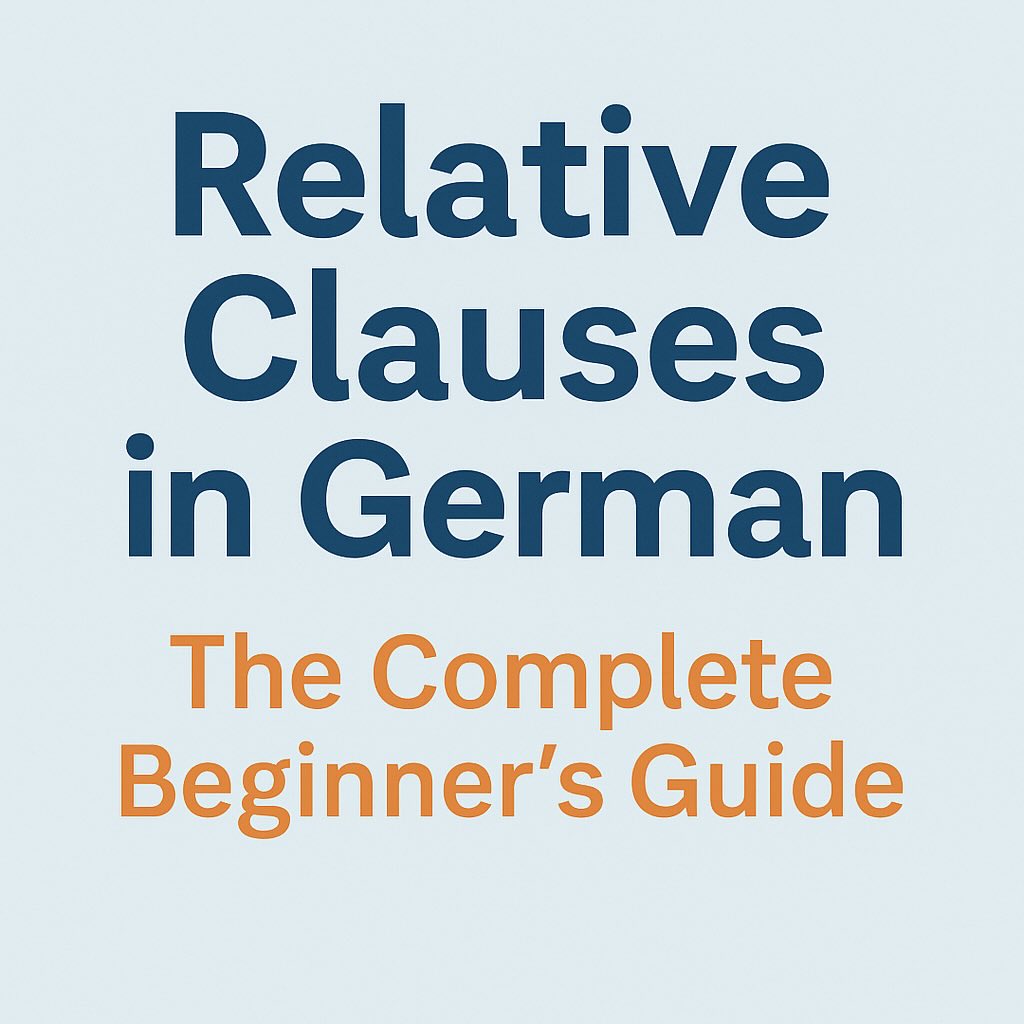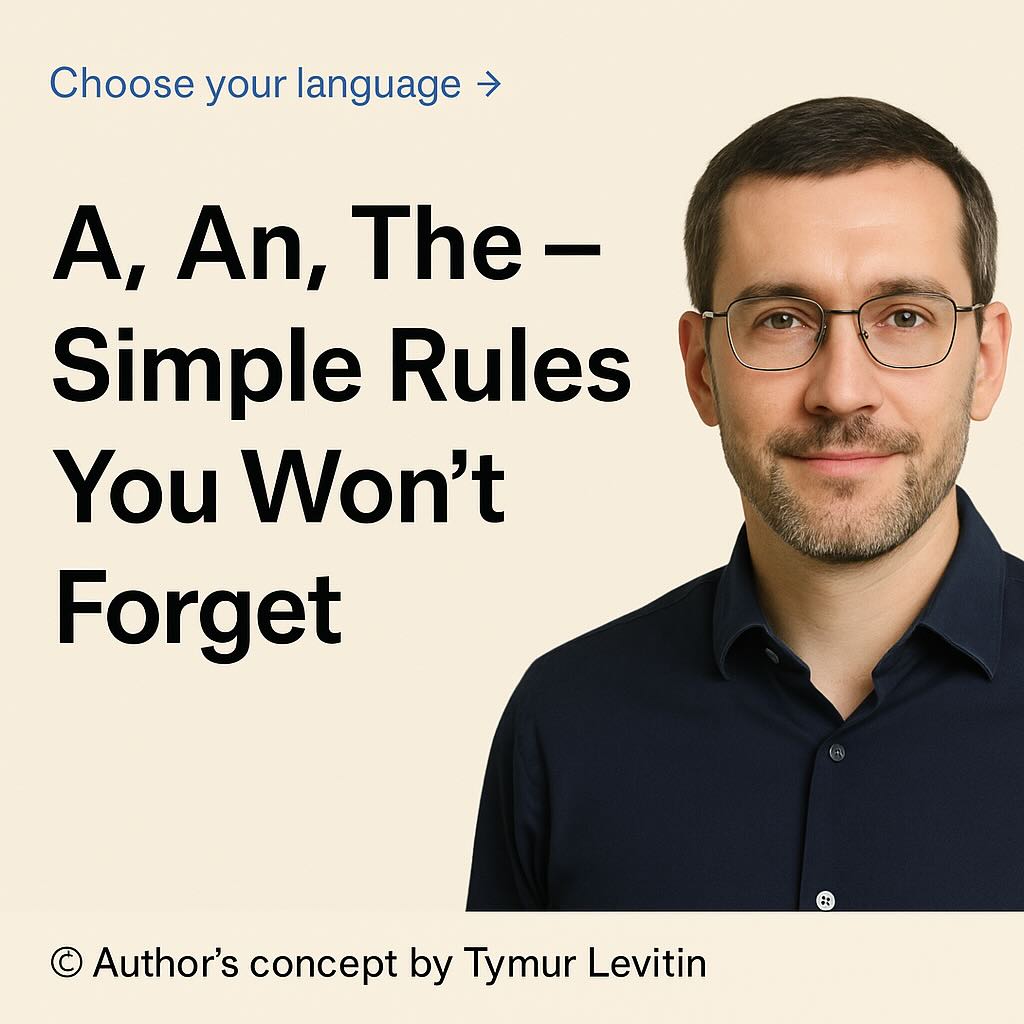Why Articles Matter in English
In English, articles are small words — a, an, the — but they play a big role in meaning. Learners often skip them, yet native speakers use them constantly. Mastering articles is one of the fastest ways to sound natural.
When to Use A / An
- A goes before words that start with a consonant sound.
- a dog, a book, a university (notice: university starts with /juː/, a consonant sound, so it’s a, nicht an)
- An goes before words that start with a vowel sound.
- an apple, an hour, an MBA (because hour und MBA start with vowel sounds /aʊ/ and /ɛm/)
👉 Rule of sound, not spelling. Always listen to the first sound, not just the first letter.
When to Use Die
- Die points to something specific or known.
- the book on the table (both know which book)
- the sun, the moon, the internet (unique things)
- With superlatives: the best, the biggest, the most interesting.
- With ordinal numbers: the first, the second, the last.
- With rivers, seas, oceans, deserts, mountain ranges, countries with plural or union words:
- the Nile, the Atlantic, the Sahara, the Alps, the United States, the United Kingdom
When We Skip Articles
- General ideas / plural or uncountable nouns:
- Books are expensive.
- Love is important.
- Names of countries, cities, streets, lakes, continents:
- Canada, Paris, Oxford Street, Lake Ontario, Asia
Quick Test: Can You Spot the Right Article?
Choose the correct option:
- I need ___ information.
- a / an / (no article)
→ (no article), because Informationen is uncountable.
- a / an / (no article)
- She wants to buy ___ new phone.
- a / an / the
→ a new phone.
- a / an / the
- We visited ___ Eiffel Tower last summer.
- a / an / the
→ the Eiffel Tower, because it’s unique.
- a / an / the
- He is ___ honest man.
- a / an
→ an honest man (/ˈɒnɪst/ starts with vowel sound).
- a / an
Common Mistakes to Avoid
❌ I have car.
✔️ I have a car.
❌ She went to cinema.
✔️ She went to die cinema.
❌ He is an European student.
✔️ He is a European student (/juː/ = consonant sound).
FAQ
Q: Is “the” used before countries?
A: Usually no: Germany, Canada, Brazil. But yes with plural or descriptive names: the Netherlands, the United Arab Emirates, the Czech Republic.
Q: Why “a university” and not “an university”?
A: Because it starts with a /juː/ sound, which is a consonant sound. Rule is based on pronunciation, not spelling.
Q: Can we use “the” with family names?
A: Yes, for families as a group: the Smiths, the Levins.
Final Tips
- Listen to the sound, not the spelling.
- Use die when it’s unique, known, or specific.
- Skip articles for general, plural, or uncountable ideas.
- Practice with real examples daily.

Mehr erforschen
If you want to go deeper into how small words change meaning, read this article from the expert column:
👉 Hören Sie auf, auswendig zu lernen. Fang an zu denken.
© Author’s concept by Tymur Levitin — founder, director, and lead teacher of Levitin-Sprachschule (Start Language School by Tymur Levitin).
























